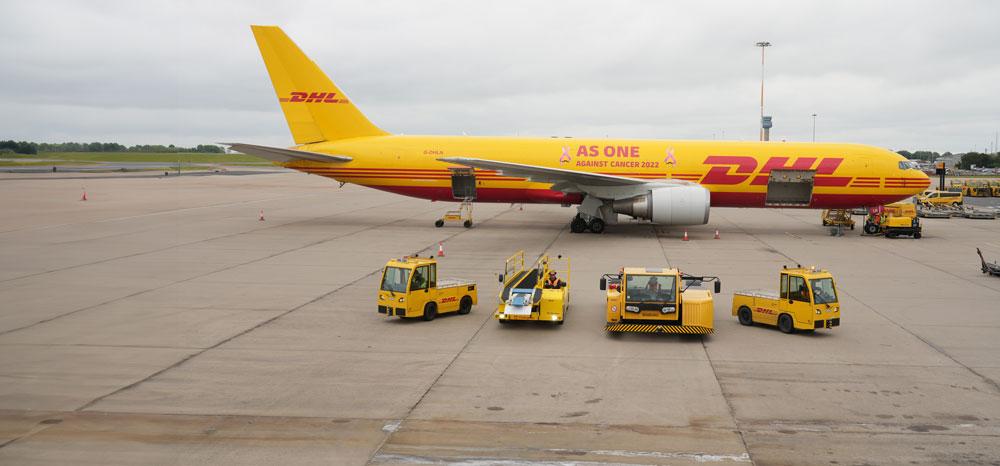DHL Express is committed to finding ways to reduce carbon emissions throughout the entire journey of its shipments, which includes its air operations. Duncan Heron, VP of DHL Express UK, discusses the company’s progress in this area
DHL has made a commitment to making international operations more sustainable, which includes investment in Sustainable Aviation Fuel (SAF) and electric ground service vehicles and infrastructure at East Midlands Airport. We talk to Duncan Heron, VP of DHL Express UK, about the company’s progress in reducing emissions from its air shipments and airport operations.
Why has DHL Express UK decided to get involved in sustainable aviation and air cargo?
For a global express carrier like DHL Express, sustainability has to go beyond the last mile, it’s about finding ways to reduce carbon emissions throughout the entire journey of our shipments and aviation is a major part of that.
Tell us about your GoGreen Plus service.
By launching GoGreen Plus, we became the first global express carrier to give customers the opportunity to reduce their Scope 3 emissions through the use of Sustainable Aviation Fuel. Selecting our GoGreen Plus service enables customers to inset the emissions associated with their shipments with SAF, offering up to 80 per cent carbon savings compared to the conventional jet fuel it replaces.
Designed to be fully flexible, GoGreen Plus can be selected for individual shipments or every shipment sent, empowering our customers to achieve carbon emission reductions in line with their own sustainability targets.
Could you tell us about your use of Sustainable Aviation Fuel (SAF) and explain how it is greener than traditional fuels?
The renewable part of SAF is made from waste materials such as used cooking oil, municipal waste and woody biomass, which produces up to 80 per cent less CO2 emissions than fossil fuel, making it the best option currently available for carbon emissions in aviation.
The CO 2 savings on a lifecycle basis are estimated to be equivalent to annual greenhouse gas emissions of approximately 400,000 passenger cars.
Are there any challenges or limitations to using Sustainable Aviation Fuel?
Across the industry, supply of SAF is still low compared to fossil fuels because demand is low. This means that collectively we need to generate the demand needed to boost SAF supplies, and collaborating with like-minded companies and organisations is key to this. For example, we are part of the Clean Skies for Tomorrow Coalition, led by the World Economic Forum, which aligns stakeholders across and beyond the aviation industry on the transition to SAF and the goal of achieving carbon-neutral flying.
DHL Express UK has recently announced a £16m investment in electric ground service vehicles and infrastructure at East Midlands Airport. Could you tell us how this is going?
It’s going well, we’ve taken on delivery of new equipment including electric tugs and ‘nose lifter’ vehicles, and our colleagues have undergone the necessary operational and safety training. It’s motivating for our people to be able to use state of art equipment that isn’t damaging to the planet.
What advice would you give to other international logistics companies when it comes to greening their air cargo and airport operations?
Sustainable transport needs to be considered as a long-term investment plan for your business and the planet and change needs to be embraced positively. Work closely with your suppliers, whether that be equipment, fuel, or energy to ensure you have what you need to achieve your goals. Be sure to engage with both your customers and your employees throughout your journey - ongoing communication and onboarding throughout the process will lead to greater success.

